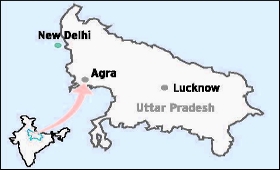|
|
|

|
Conventional markets hit by e-commerce companies
|
|

|
|
| Top Stories |
 |
|
|
|
SME Times News Bureau | 21 Oct, 2019
E-commerce companies are buying
and selling goods on the Internet and are expanding their footprints
everyday. This has impacted the business of local markets in a big way.
Even during the festival season, most of the local markets here continue
to look deserted, said the traders association on Monday.
Business
chambers and various market associations have been protesting against
the expansion of online business platforms and e-commerce companies for
several days, and have accused them of unfair practices.
Electronics
and mobile dealers say they have been the worst affected. The business
organisations have shot out memorandums and petitions to the Centre
urging it to come to their rescue by restricting trade activities of
e-commerce companies.
The construction workers, electricians and
painters are without work. The interior decor shops have few customers,
as a large number of real estate projects are in a limbo. The jewellery
shops and automobiles dealers report a cold response from clients on the
eve of festivals.
Every year from the first day of Navratri to
the 14th of December, the first phase of the festive season, gives
traders an opportunity to grab maximum sales. Thirty percent of the
total value of business in a year happens during this festive season but
this year traders are desperate and disappointed with the sales. With
barely one week left for Diwali, commercial markets are facing a demand
slump. They have lost hopes of recovering from accumulated losses.
According
to the Confederation of All India Traders (CAIT), the apex organisation
of traders across the country, the main reason for such a dismal
scenario is "due to highly surging sales in e-commerce market which is
offering huge discounts on various products and even indulging in
predatory pricing and adopting all kinds of unfair business practices
which have greatly attracted customers to online markets.
Recently,
in the festival sale put up by Amazon and Flipkart, both companies have
sold goods worth around Rs 19,000 crore in just four days, which makes
it clear that a large part of the business of brick and mortar shops had
already been shifted to the online portals.
CAIT National
President B.C. Bhartia says that the retail trade in India generates an
annual business of about Rs 45 lakh crore out of which during festive
season alone business of about Rs 6 lakh crore is conducted.
CAIT
Secretary General Praveen Khandelwal said, "due to unscrupulous
business practices of online companies, there is a decline of about 60
per cent in the business of mobile sector only, 35 per cent in FMCG and
consumer durables, 35 per cent in electronics goods, 30 per cent in
electrical appliances, 25 per cent in apparel, 20 per cent in footwear,
35 per cent in gift items, 25 per cent in decorative items, 15 per cent
in building hardware, 30 per cent in kitchen equipment, 30 per cent in
computer and computer goods, 35 per cent in grocery, 20 per cent in
watches, 30 per cent in beauty and cosmetics, decline of 35 per cent in
luggage, 30 per cent in fitness and sports goods, 40 per cent in fashion
clothing and about 30 per cent in toys and if the market goes on like
this for another week, then on this Diwali festival, only due to
unethical business model of e-commerce companies, there will be a drop
of about 50 to 60 per cent in the total business of traders, which is
quite alarming."
The CAIT office bearers said that due to the
great slump in the markets and absence of festive spirit, the trade
leaders across the country have decided not to decorate the markets on
this Diwali as a mark of protest against e commerce companies who are
bent upon controlling and monopolising the country's vast retail trade
by flouting FDI policy and adopting unfair business practices.
|
|
|
| |
|
|
|
|
|
|
|
|
|
|
|
|
|
|
| |
| Customs Exchange Rates |
| Currency |
Import |
Export |
US Dollar
|
₹91.35
|
89.65 |
UK Pound
|
₹125.3
|
₹121.3 |
Euro
|
₹108.5
|
₹104.85 |
| Japanese
Yen |
₹58.65 |
₹56.8 |
| As on 19 Feb, 2026 |
|
|
| Daily Poll |
 |
 |
| What is your primary "Make or Break" expectation from the Finance Minister this year? |
|
|
|
|
|
| Commented Stories |
 |
|
|
|
|
|
| |
|